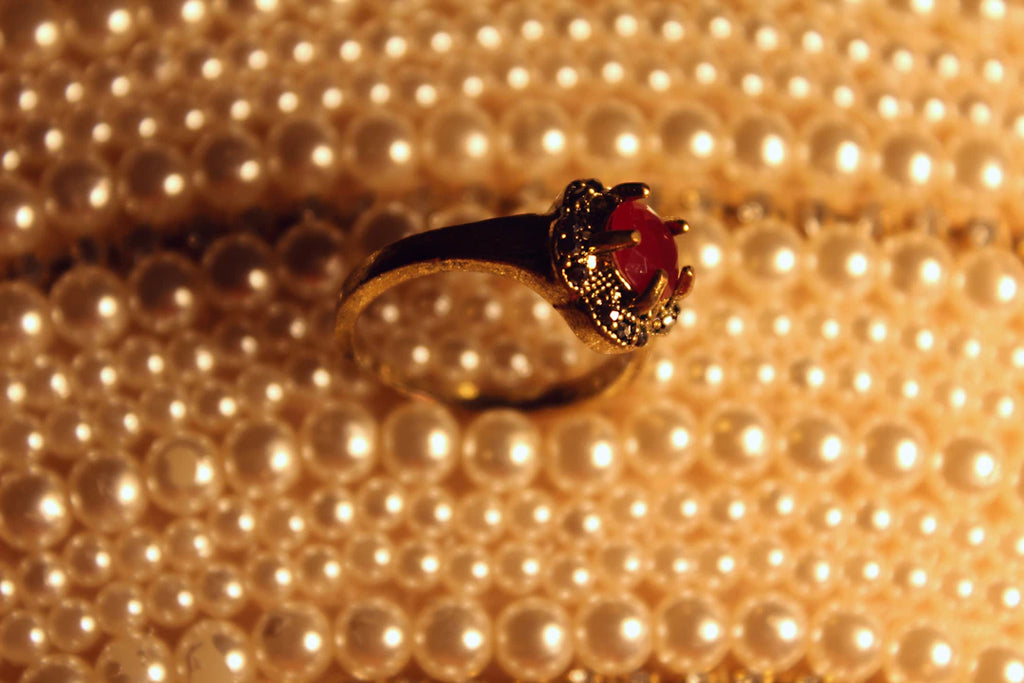The Importance of Tahitian Pearls in Hawaiian Culture

Frequently Asked Questions
1. What are black tahitian pearls?
2. What is the cultural significance of black tahitian pearls in Hawaii?
3. How are tahitian pearls used in Hawaiian traditions?
4. What are the environmental connections associated with tahitian pearl cultivation?
5. How has the global demand for tahitian pearls impacted Hawaiian culture?
When one thinks of Hawaii, images of stunning beaches, lush landscapes, and vibrant culture come to mind. Among the many treasures of this beautiful archipelago, the black tahitian pearls hold a significant place in the hearts and traditions of its people. Known for their beauty and unique color, these pearls are more than just adornments; they are symbolic of Hawaiian heritage, craftsmanship, and storytelling. In this blog post, we will delve into the role of tahitian pearls in traditional Hawaiian culture, exploring their significance, uses, and the deep-rooted connections they have with the Hawaiian people.
Understanding Tahitian Pearls
Before diving into their cultural significance, it's important to understand what tahitian pearls are. Cultivated primarily in the warm waters of French Polynesia, tahitian pearls are formed within the black-lipped oyster, scientifically known as Pinctada margaritifera. They are unique due to their natural dark hues, ranging from deep black to shades of gray, green, blue, and even purple. These black tahitian pearls are not just beautiful—they are a testament to the unique ocean environment from which they originate.
The Cultural Significance of Black Tahitian Pearls
Symbols of Wealth and Status
Historically, pearls have been seen as symbols of wealth and elevated social status in many cultures, and Hawaii is no exception. In traditional Hawaiian society, the use of black tahitian pearls often denoted a person's rank and wealth within the community. High-ranking chiefs and aliʻi (nobility) would wear lavish amounts of jewelry, including necklaces and earrings made from these exquisite pearls, during important ceremonies and rituals.
Today, black tahitian pearls continue to serve as a status symbol, representing not only wealth but also taste and appreciation for craftsmanship. Many Hawaiians take pride in wearing these jewels as a connection to their ancestors and cultural heritage.
A Tool for Storytelling
Tahitian pearls also play an essential role in Hawaiian storytelling and oral traditions. Many tales of creation and the natural world feature references to the ocean and its riches. Pearls, especially black tahitian pearls, are often mentioned in these stories, symbolizing rarity, beauty, and the complex relationships between humans and nature.
Through storytelling sessions, especially during luaus and cultural events, the importance of these pearls is reiterated, ensuring that the younger generations appreciate their cultural significance. The intricate designs often crafted in jewelry pieces embody these stories, adding depth and meaning to the artwork.
Traditional Uses of Tahitian Pearls in Hawaiian Culture
Jewelry Making
One of the most prominent uses of tahitian pearls in Hawaiian culture is in jewelry making. Locally crafted items like necklaces, bracelets, and earrings often feature these stunning pearls. The artistry that goes into creating such pieces is reflective of the cultural richness and skilled craftsmanship found in Hawaii.
Jewelry made from black tahitian pearls is often worn during special occasions, such as weddings, birthdays, and cultural festivals, serving as a tangible connection to one's heritage. It is also common for families to pass down heirlooms featuring tahitian pearls, linking generations through these beautiful tokens.
Rituals and Ceremonies
Beyond aesthetics, tahitian pearls hold a sacred place in various Hawaiian rituals and ceremonies. They may be used as offerings to deities, symbolizing respect and gratitude, or as part of traditional practices aimed at protecting and blessing families.
In contemporary practices, many Hawaiian practitioners still incorporate black tahitian pearls in their rituals, highlighting the pearls' continued relevance in spiritual practices. These pearls serve as links between the people, their environment, and their cultural beliefs, enhancing the ceremonies' significance and beauty.
The Environmental Connection
Harmony with Nature
The cultivation of tahitian pearls is also tied to the Hawaiian philosophy of living in harmony with nature. The black-lipped oyster, from which these pearls are derived, thrives in pristine ocean environments. As such, the efforts to cultivate them require a commitment to sustainable practices and environmental stewardship.
As a symbol of this relationship, hawaiians regard the black tahitian pearls as natural gifts. Their existence reflects the health of the ocean ecosystems, and every pearl harvested is seen as a reminder of the necessity to maintain balance and respect for the natural world.
Sustainable Harvesting Practices
To ensure the future of tahitian pearl farming, many local businesses in Hawaii are embracing sustainable practices. This includes methods that minimize environmental impact and promote the health of marine life. By ensuring that pearl cultivation does not disrupt marine ecosystems, Hawaiian pearl farmers not only preserve their culture but also protect their natural resources for generations to come.
Craftsmanship and Artistry
The Art of Pearl Jewelry Making
The process of crafting jewelry from tahitian pearls is an art form steeped in tradition. Hawaiian artisans use techniques passed down through generations, combining them with modern styles to create pieces that reflect both the rich history and contemporary culture of Hawaii.
Working with black tahitian pearls requires a delicate touch and a keen eye for design. From the selection of pearls to the craftsmanship involved in designing the final product, every step highlights the artisan's skill and dedication to their craft.
Educational Initiatives
In recent years, there has been a push to educate both locals and visitors about the cultural significance of tahitian pearls. Workshops and courses often cover pearl cultivation, jewelry-making techniques, and the broader context of how these pearls fit into Hawaiian culture. Such initiatives foster appreciation and respect for the artistry involved, ensuring that this tradition continues to thrive.
The Global Impact of Tahitian Pearls
A Jewel of the Pacific
As tahitian pearls gain popularity on the global stage, their unique beauty is captivating collectors and fashion enthusiasts worldwide. This rising demand contributes significantly to Hawaii's economy while also promoting its unique cultural identity.
However, with this growth comes the responsibility to maintain the cultural and ecological integrity of pearl harvesting. Businesses must prioritize ethical sourcing and sustainable practices, creating a balance between commercial success and cultural preservation.
Growing International Recognition
The beauty and significance of black tahitian pearls have garnered attention from international markets, resulting in collaborations and partnerships that elevate Hawaiian craftsmanship to a global audience. By showcasing these pearls, artisans have the opportunity to share their stories and culture beyond the shores of Hawaii.
Bringing it All Together
In summary, the role of tahitian pearls, particularly black tahitian pearls, in traditional Hawaiian culture, is multifaceted and deeply rooted. From being symbols of wealth and status to tools for storytelling and connectedness to nature, these pearls hold significant value within the community. As the world embraces these precious gems, it becomes increasingly crucial to honor and protect the traditions and environmental practices linked to them.
So the next time you admire a beautiful piece of jewelry featuring a black tahitian pearl, remember that it’s not just a stunning accessory; it's a piece of history and culture. By purchasing such items, you're not only investing in high-quality art but also supporting a tradition that has stood the test of time, ensuring that future generations will continue to celebrate the beauty and significance of tahitian pearls in Hawaiian culture.
Take a moment to explore another user's Shopify or Wix store. Visit their store through this link. Please be aware that this is a promotional link, and we cannot be held responsible for the content of the linked store.

Laat een reactie achter